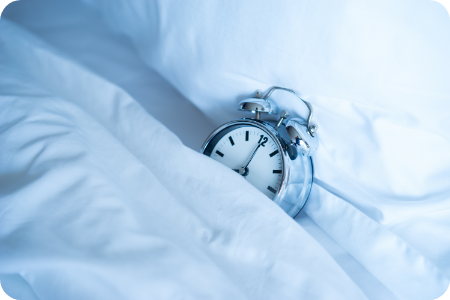How to Read kokoromil Test Results
The kokoromil test visualizes your heart and heartbeat.
Explanatory Video
Table of Contents
01
Arrhythmia

The definition of arrhythmia is broad and varied. We are particularly interested in whether "life-threatening and dangerous arrhythmias" are present during the examination period. We look for the following. Many arrhythmias appear occasionally and may not have appeared by chance during the examination period.
If you are found to have a dangerous arrhythmia, it may be a sign of other cardiac problems. We urge you to see a cardiologist.
In particular, atrial fibrillation can cause stroke, which has a more than 60% chance of causing serious sequelae or death. It is said that treatment will reduce the risk of stroke to 20%.
02
Sleep

The kokoromil test checks sleep quality from two perspectives.
Sleep apnea syndrome (SAS)
Relaxation score during sleep
Sleep apnea syndrome is defined as the occurrence of 5 or more apneas per hour. In the kokoromil test, a "B" grade is given when a heart rate change that is suspected of causing apnea occurs 20 or more times during a specific time period, and a "C" grade is given when it occurs 40 or more times.
A grade of B or higher indicates an increased risk of heart failure as well as daytime sleepiness, and a visit to your local sleep clinic is recommended.
Relaxed state during sleep is based on heart rate variability analysis. Based on the theory of Dr. Kuratsune, Professor at Osaka Public University, the judgment is made using not only autonomic nervous system activity during sleep, but also daytime trends and sleep duration as indicators.
Those with a poor score may have high stress, be in an agitated state before going to bed, drink alcohol before going to bed, or have sleep apnea syndrome.
To improve your stress tolerance and for the future happiness of yourself and your family, try mindfulness (breathing meditation), aromatherapy, therapy, and other methods that suit you to get a good sleep.
03
Stress

Stress is said to be the cause of all illnesses, but unfortunately there is still no method to determine stress with strong evidence.
Based on the theory of Dr. Kuratsune, Professor of Osaka Public University, derived from over 20,000 cases of data, we determine stress by analyzing the situation just before going to bed.
It is known that a good night's sleep improves stress tolerance, but if a person is overstressed just before going to bed, his/her relaxation state during sleep also tends to deteriorate. Try mindfulness (breathing meditation) or other training to regulate your mind and body before going to bed.
Related Articles

Warning: Undefined array key "small" in /home/soleda1101/soleda-jeo.com/public_html/sample3/wp-content/themes/kokoromil/template-parts/linkBlock.php on line 6

Warning: Undefined array key "small" in /home/soleda1101/soleda-jeo.com/public_html/sample3/wp-content/themes/kokoromil/template-parts/linkBlock.php on line 6

Warning: Undefined array key "small" in /home/soleda1101/soleda-jeo.com/public_html/sample3/wp-content/themes/kokoromil/template-parts/linkBlock.php on line 6




